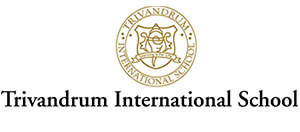High school is a defining period for students, marking the transition from adolescence to adulthood. The dichotomy of discipline and freedom plays a pivotal role during these formative years. Striking the right balance can make a world of difference in their holistic development. Here, we explore how to ensure this equilibrium.
Understanding Discipline and Freedom
Before delving deep, let’s get a clear perspective on what constitutes discipline and freedom:
- Discipline: It is the set of rules and structures which provides guidance, ensuring students stay on track academically and morally.
- Freedom: This refers to the autonomy students get, which lets them make choices, explore interests, and develop individuality.
The Role They Play
- Growth & Maturity:
- Discipline: Provides a structure, helping students manage their time and priorities.
- Freedom: Allows them to learn from their mistakes, fostering maturity.
- Identity & Interests:
- Discipline: Ensures they have a solid foundation, giving a sense of stability.
- Freedom: Offers opportunities to discover passions, hobbies, and a sense of self.
- Responsibility & Accountability:
- Discipline: Instills a sense of duty and adherence to rules.
- Freedom: Teaches them the consequences of their choices, cultivating responsibility.
Potential Pitfalls of Imbalance
- Excessive Discipline:
- Can lead to suppressed emotions and a lack of personal identity.
- Students might feel stifled, leading to rebellion.
- Unbridled Freedom:
- Could result in poor time management and distractions.
- Students may lack direction and structure, leading to adverse choices.
Strategies to Achieve the Balance
- Flexible Timetables:
- Having a set routine with room for spontaneous activities strikes a good balance.
- For instance, allocate specific hours for study, but let students choose which subject to tackle.
- Encourage Extracurricular Activities:
- While academics are paramount, engaging in sports, arts, or club activities allows students to explore and express themselves.
- Set Clear Boundaries:
- While giving freedom, ensure that there are certain non-negotiable rules. This might include guidelines about attendance, respect for peers and teachers, and integrity in examinations.
- Promote Open Dialogue:
- Encourage students to discuss their concerns and challenges. By understanding their perspective, it’s easier to adjust the discipline-freedom ratio to suit individual needs.
The Influence of Peers and Technology
In today’s digital age, peers and technology greatly influence the balance:
- Peer Pressure:
- Discipline: Helps students stay grounded and not succumb to detrimental pressures.
- Freedom: Allows them to choose their friends and learn interpersonal skills.
- Technology & Social Media:
- Discipline: Ensures students use technology for educational purposes and not get sidetracked.
- Freedom: Enables them to harness the vast resources online, from e-books to educational videos, and cultivate digital literacy.
Tips for Parents and Educators
- Regular Check-ins: Keep a pulse on the student’s academic performance and emotional well-being. This helps in adjusting the freedom-discipline scale timely.
- Empower, Don’t Impose: Instead of mandating decisions, empower students with the right tools and knowledge to make informed choices.
- Stay Updated: With the fast-evolving world, what worked a decade ago might be obsolete now. Being updated, especially with technological advancements, ensures that discipline does not become draconian.
Conclusion
The high school years are a tightrope walk between discipline and freedom. But with the right strategies, students can get the best of both worlds. The crux is to have structured freedom – where students are given autonomy but within certain boundaries. This ensures they are ready for the real world, equipped not just with academic knowledge but also life skills. The ultimate goal is to mould independent thinkers and responsible citizens, and this balance plays a significant role in achieving that.



